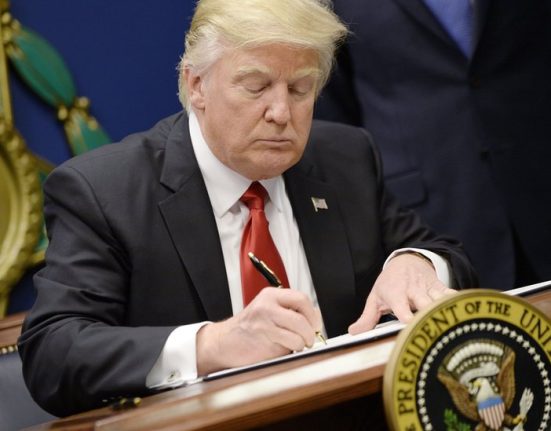Washington D.C., USA — Former U.S. President Donald J. Trump has announced the reinstatement of the controversial “Muslim travel ban”, justifying the move with growing security concerns following a recent attack in Colorado and what he described as escalating threats across parts of Europe.
Trump, who is making another bid for the White House, made the announcement during a campaign event, stating that the measure is necessary to “protect Americans from terrorism and extremist violence.” He argued that certain countries with a history of radical elements pose “real dangers” to U.S. homeland security.
Although he did not list the affected countries in his latest remarks, the previous version of the policy—enacted during his first term in 2017—targeted majority-Muslim nations including Iran, Libya, Somalia, Syria, Yemen, and Sudan. That policy sparked global outcry, lawsuits, and was eventually overturned by President Joe Biden in 2021.
Speaking to supporters, Trump said, “What happened in Colorado and what’s happening all over Europe is a wake-up call. We will not wait for terror to reach our shores again.”
Critics have swiftly condemned the move, with civil rights groups labeling it discriminatory and a violation of religious freedoms. The American Civil Liberties Union (ACLU) vowed to challenge any attempt to reinstate the policy, describing it as “xenophobic and ineffective.”
International reaction has also been swift. Several Muslim-majority countries expressed concern over what they see as a return to exclusionary politics. Analysts say the move could sour diplomatic relations and impact immigration flows, especially for refugees and students.
In Nigeria, where thousands of citizens apply annually for various U.S. visa categories, the news has sparked anxiety. Immigration experts warn that should Nigeria be included again—as it briefly was under Trump’s previous administration—it could affect travel plans, international academic pursuits, and global mobility for many Nigerians.
Though the legal and administrative details of the reinstatement remain unclear, Trump’s statements have reignited the debate over immigration, national security, and religious profiling in the United States.
Political observers believe the move is part of Trump’s broader campaign strategy to reignite his conservative base ahead of the 2024 U.S. presidential election.

